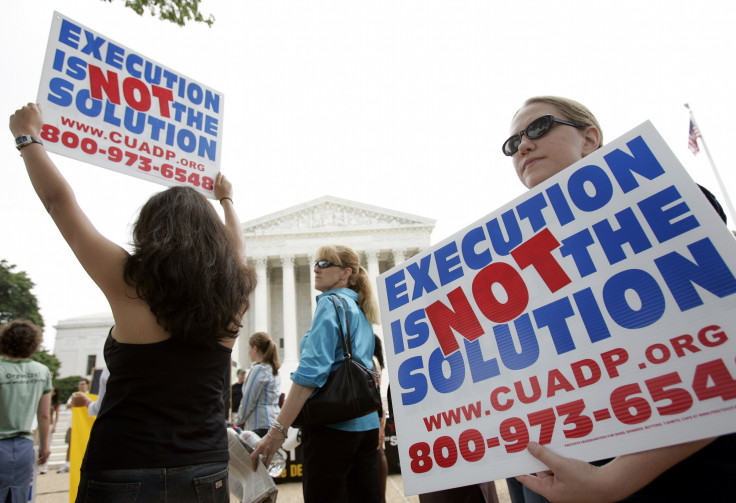Who Was Christopher Young? Texas Executes 8th Prisoner In 2018

Texas executed the death row inmate who was convicted for the 2004 fatal shooting of a San Antonio convenience store owner on Tuesday, despite objections from the victim’s family.
According to the Texas Department of Criminal Justice, Christopher Young, 34, was administered a lethal injection and pronounced dead at 6:38 p.m. local time (7:38 p.m. EDT). In 2004, at the age of 21, he shot and killed Hasmukh Patel, a 55-year-old store owner, during a robbery.
The final statement Young made before he died was to let the Patel family know how grateful he was for their support.
“l want to make sure the Patel family knows I love them like they love me. Make sure the kids in the world know I'm being executed and those kids I've been mentoring keep this fight going. I'm good, Warden,” he said just before given the lethal dose, CNN reported.
Young became a member of the Bloods street gang after his father was killed in a robbery when he was eight years old and since then, he started dealing drugs. Prior to that, he was like any ordinary, or rather gifted adolescent, excelling at chess and violin, cello and bass.
On Nov. 21, 2004, Young sexually assaulted a woman in her apartment where her three children were present and later, forced her to drive off with him, according to court records obtained by New York Daily News. He then drove a block to the Mini Food Mart where Patel was shot.
Texas has executed death row inmate Christopher Young, 34.
— CNN (@CNN) July 18, 2018
The victim's family had opposed the execution of Young, who fatally shot a store owner during a robbery in November 2004. https://t.co/DxNjDPucUB pic.twitter.com/zo7TFLVXGH
The San Antonio police later tracked down the car Young was driving, which was parked outside a crack house where he had taken a prostitute to. Young never denied shooting Patel and said his actions stemmed from a misunderstanding because he knew the victim and his family.
“He was not a bad dude at all,” Young said. “I was drunk. We knew the victim. The whole confrontation went wrong. I thought he was reaching for a gun and I shot.”
Although Patel’s son, Mitesh Patel, initially thought Young was being rightly punished for what he did to his father, the former recently changed his notion, as he reflected on the values taught to him by his father.
"Two wrongs don't make a right," Mitesh said. "Killing Chris doesn't change my path, my history. It only affects a whole other set of people. The biggest thing that drove me to change was that [Young is] actively involved in [his] daughter's visits. He's trying to be a good father. Being a father myself, and having lost a father, I don't want someone to go through life without a father."
"I really do believe Chris Young today is not the person he was 14 years ago," he said Monday. "It's really unfortunate that the board didn't hear our request for clemency. I feel sadness for his family. They're going to be walking down the same path my family has been on the last 14 years."
After Young’s request of clemency was denied by the Texas Board of Pardons and Paroles last week, his attorney sued the board, alleging that the denial of clemency was based on the fact that his client was African-American.
Young, who was no longer associated with the Bloods, told The Associated Press before his execution: “I didn’t know about death row. It needs to be talked about. You’ve got a whole new generation. You’ve got to stop this, not just executions but the crimes. Nobody’s talking to these kids. I can’t bring Hash back but I can do something to make sure there’s no more Hashes.”
Young is the eight prisoner to receive the capital punishment this year in Texas – which is two more than the total number of prisoners executed by the state last year. To put the alarming rate in which the state executes prisoners in perspective, there have been 13 convicts put to death in the entire U.S. this year and eight of them are from Texas.
© Copyright IBTimes 2025. All rights reserved.






















